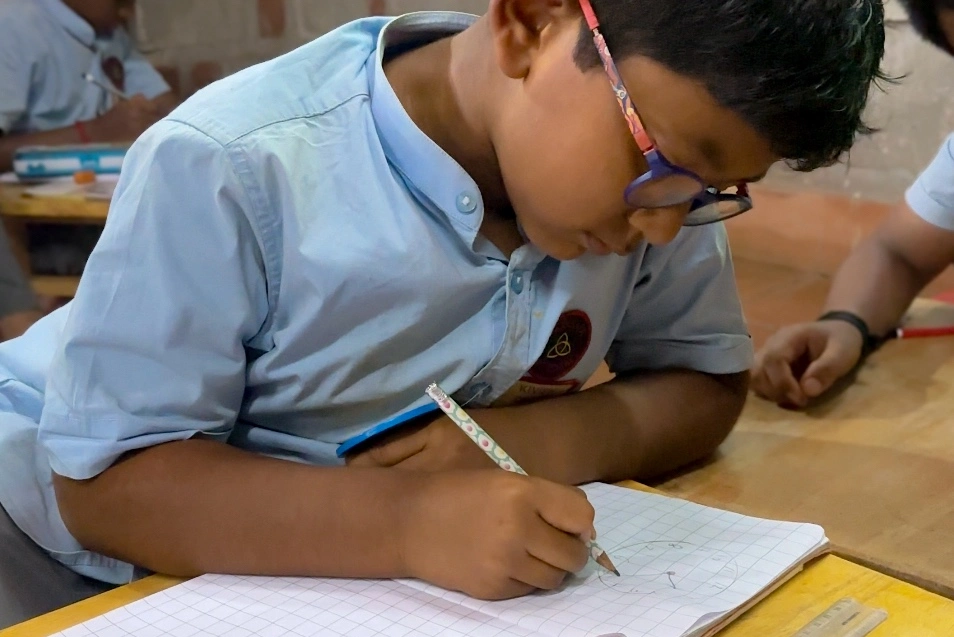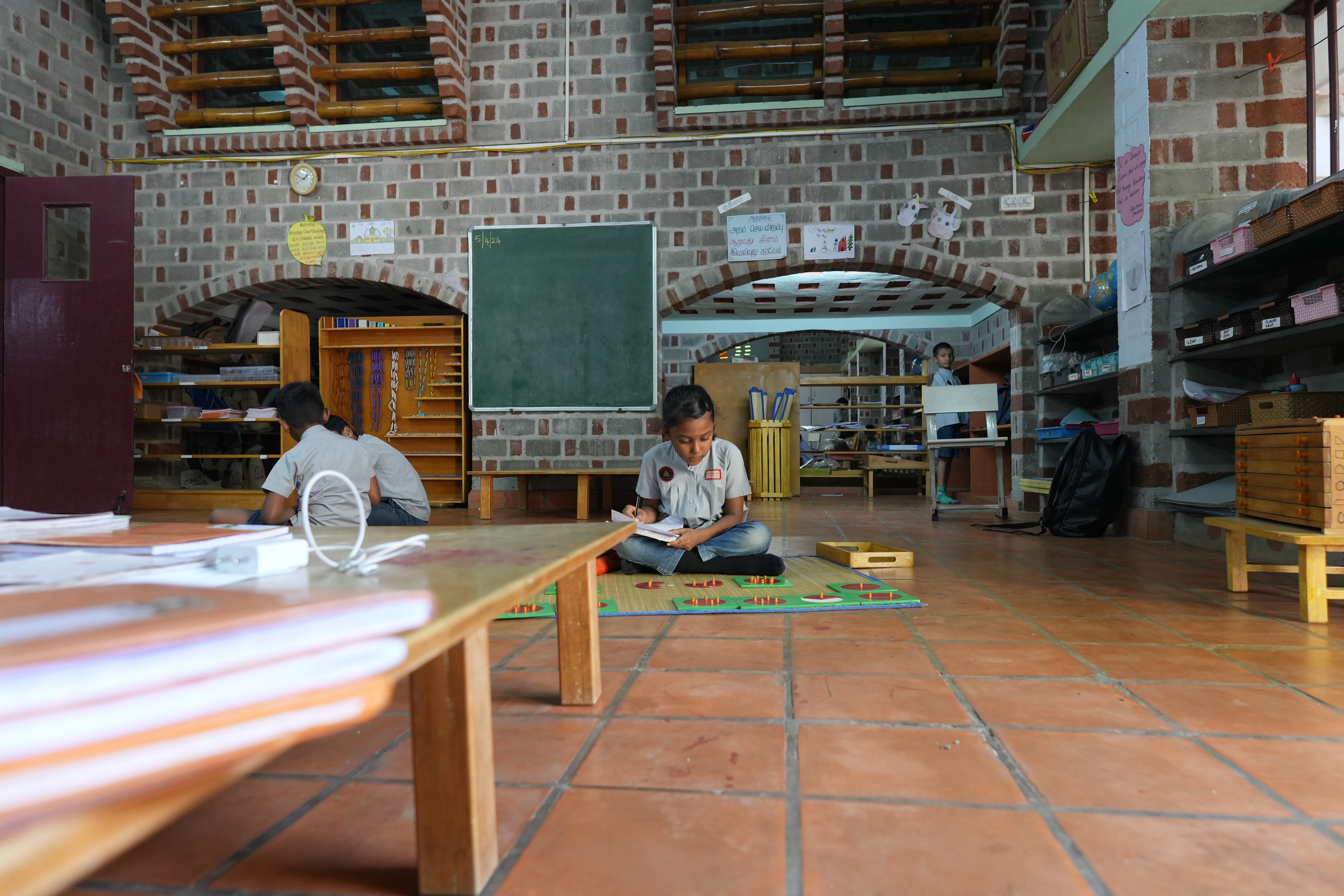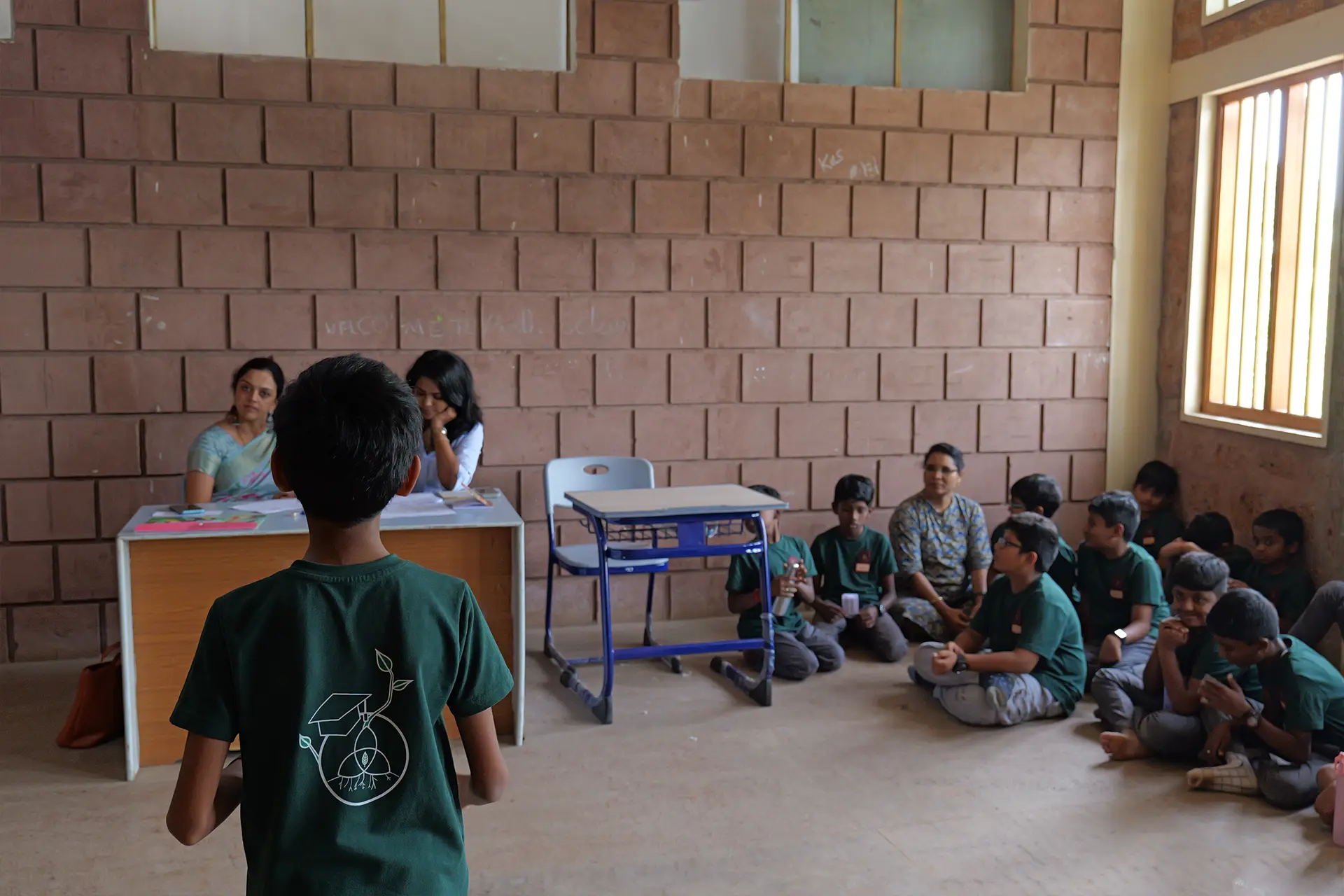Journaling: Building Lifelong Habits Through Reflection

A. Why Journaling Matters
At Samskaara Academy, we believe that the habits formed in elementary school lay the foundation for lifelong learning. Journaling is one such habit that helps students develop self-awareness and accountability. In many progressive schools, students are encouraged to record their daily work, track progress, and reflect on their activities.
By writing down what they do each day, from choosing a material to completing exercises or attending classes, students learn to take responsibility for their learning. Famous thinkers, including Leonardo da Vinci, kept meticulous journals to document ideas and experiments, demonstrating how daily reflections compound into meaningful achievements over time. Journaling at Samskaara follows a similar principle, showing children the impact of consistent, small steps in their own lives.
B. How Journaling Works in Elementary School
In our classrooms, students maintain a practical journal specifically designed to track school activities. Each entry typically includes the date, time, and activity, for example:
- 8:45 AM: Chose a math material and completed exercises by 9:15 AM.
- 10:15–10:20 AM: Attended a language class.
- 10:20–10:40 AM: Participated in PT or physical activity.
This structured journaling method is part of our elementary school journaling activities, helping students record progress, identify patterns, and note unfinished work for later follow-up. Teachers also use the journals to monitor learning, check follow-ups, and provide personalized guidance.
By practicing journaling daily, students develop time management skills, focus, and self-discipline, which are crucial not just for school but for life beyond the classroom.
C. Presentations: Linking Journals to Learning
A unique feature at Samskaara is the presentation system, which works hand-in-hand with journaling. Presentations are how new concepts are introduced to students, using hands-on materials like boards, charts, experiments, and timelines. Students are called in small groups for their designated presentation times, ensuring focused learning. During these sessions, they engage actively with the materials, apply concepts practically, and record their progress in their journal. A sheet in the Journal will be filled in by the adult, mentioning the concept or material presented. For the teacher, this serves as a record of what each child has received and the child can refer it to plan their day and choose follow-up work accordingly.
D. The Journey of Journaling Through Elementary Years
Maintaining journals begins in Grade 1, where children learn about time and start writing about their day activities, lunchtime, physical training, and more. As they grow, their journals evolve to include going out plans, student-teacher conferences, and even little notes to themselves.
This simple habit stays with them through all five years of elementary school, helping them reflect, plan, and stay organized. The progression is natural and meaningful. Young children might draw pictures alongside their words, while older students write detailed reflections about their learning experiences. Each year builds on the previous one, creating a foundation of self-awareness and responsibility that grows with the child.
E. Building Lifelong Skills Through Journaling
The practice of journaling in elementary school develops habits that last a lifetime. Children learn to observe, reflect, and track progress, building critical thinking, responsibility, and independence. Regular journaling also strengthens self-expression, allowing students to articulate thoughts, analyze experiences, and see the results of their efforts clearly.
These skills form the foundation for future academic success and personal growth. Students who journal daily are more likely to stay organized, set goals, and approach challenges with a reflective mindset, making them adaptable and self-aware learners.
F. Montessori Philosophy in Action
At Samskaara Academy, journaling exemplifies the Montessori philosophy by emphasizing independence, self-paced learning, and practical life skills. By integrating journaling with presentations and hands-on learning, students experience a holistic approach to education that supports their academic, emotional, and personal development.
By keeping track of their work daily, students cultivate a mindset that values reflection and self-improvement, preparing them to thrive in higher grades and beyond.
------------------------------------------------------------------------------------------------------------------------------------------------------------------------------------------------------------------------
Contact us
WRITE
CALL
OUR LOCATION
Subscribe to our newsletter
Lorem ipsum dolor sit amet, consectetur adipiscing elit. Suspendisse varius enim in eros elementum tristique.



%202.webp)
